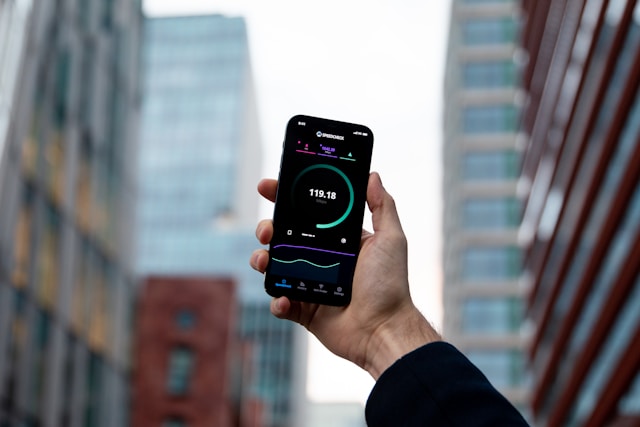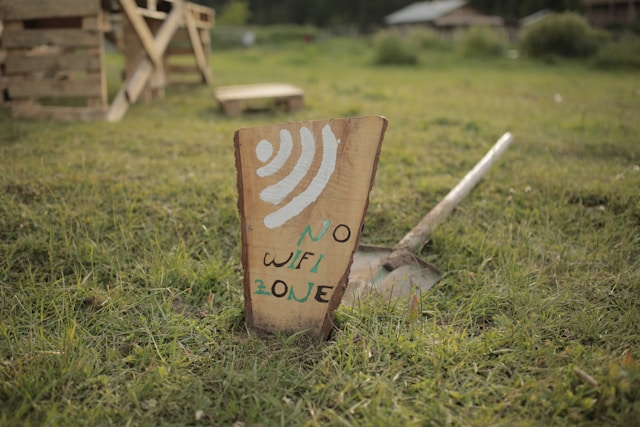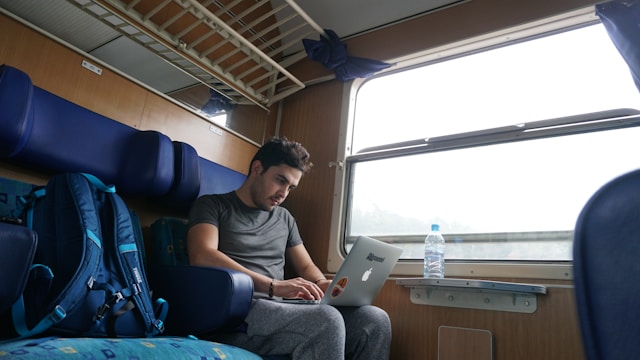Heading off for you vacation in Europe? Read on to get some insider tips on how to stay connected in Europe, whether you are a digital nomad, solo adventurer, or occassional WiFi user.
Planning a trip and traveling itself has become a logistic piece of cake. Nowadays, when you think of a random destination to head off to, you grab your phone and search for a cheap flight within 2 minutes. Check! You need a room to stay but not sure of your arrival date? No problem. Just make a reservation with an option to cancel. Check!
Searching for good local food, attractions worth visiting, booking a taxi from your phone… all this and more is just a smooth norm now, and hardly any of us remembers the days when we would roam the streets with an unfolded crinkled map, checking in at a place we read no reviews about.
It’s hard to say which way of exploring the world is better. The more advanced one makes things easier, while the old fashioned one makes them more adventurous, with unexpected surprises on the way.
9 Tips on How to Stay Connected in Europe
If you are one of those travelers who prefer comfort over everything, or if you are a digital nomad planning to travel around Europe, then our tips on how to stay connected in Europe are just for you.
Multi-country Sim card
Amazing way to stay connected in Europe with zero hassle. It is particularly useful when you plan to visit different countries.
Let’s face it. Who feels like setting up a new sim card every time you cross the border? Multi-country Sim card for Europe from Orange Travel will save you money and time. Big time.
Not only will you obtain data according to your need and preference, but also FREE calls within Europe, and a certain amount of free minutes for International calls, depending on the package you purchase. You can always top up your credit, whenever you are.
It also minimizes the struggle of getting a new phone number every time you enter a new country, when you face the challenge of dealing with a new language, finding the right operator with the most convenient package, you name it.
As a huge bonus, Orange Travel offers a revolutionary e-sim (embedded) card, which is a virtual card you can install online. It’s particularly handy when arriving at your new destination in the wee hours, and you need to get to the hotel, for example. You will be already connected, and stress-free.
Note: Similarly to dual sim phones, also with e-sim cards you can have multiple phone numbers, which you will be grateful for if your bank and payment apps are connected to your major home country phone number.
Public Wi-Fi


This can be an option only in a few countries in Europe. Portugal, Sweden, Finland and Germany have one of the safest and fastest public Wi-Fi systems in Europe. This could work if you do lots of sightseeing, and spend most of your travel days outside your hotel room. Not a winner for those who work remotely and need to be connected 24/7.
Get inspired:
Cafés


You would think that nowadays every owner of a cafe provides Wi-Fi for his customers so that they can spend more time and money at his or her establishment. Well, not in Italy. But also Paris, Barcelona, London, or Berlin are now banning laptops at their cafes, or reducing the allowance during the peak hours.
In many cases the obvious reason is the fact that customers with laptops are so “buried” at their online work, that they tend to “forget” to order another beverage, and stay there for hours without paying for a single espresso or a diet soda. The owners are also kinda fed up with seeing customers glued to their screens, which we cannot argue about. That said, you can connect to the Internet in some cafes in Europe, yet do not take it as a guaranteed way to stay online.
Co-working spaces


Ideal for digital nomads who need a quiet environment to work and reliable high speed Internet to do so. Most co-working spaces offer a week or a month pass, some of them even a free trial day or half day pass, which can be convenient, if you do only a quick stopover in some cities.
The big advantage is privacy for possible business calls, since the majority of co-working spaces provide a soundproof room. It’s also a cool place for networking and meeting like-minded people. Great way to focus on work with no surrounding distractions. The challenge comes when you travel in the countries in Europe where co-working spaces are not so popular, or in smaller towns, villages.
Hotels
A good option of how to stay connected in Europe for some basic search or when you want to send a quick email. Nowadays, most of the accommodation comes with free Wi-Fi. Downside is that if the hotel is full, the speed usually slows down. No biggie if you just need to send a brief message to your friends and family, but again, if you need something solid to work with, or send some big files, or stream a movie, you might have some slight hiccups here.
Train, bus stations, airports


This is applicable only to some countries, and again, it might work only for simple search on your phone. The main disadvantage is that many times, when you want to connect at the airports, let’s say, you might need to register to some new networks, which can take some time, and it’s not unusual that the provided Internet is quite slow.
Libraries
Introverts’ heaven! Since libraries have a common policy of quiet zones, this one will be a perfect way to connect to Wi-Fi for all who seek peace. In some cases you will need to officially sign up as a member and pay a small annual fee. Although, some advanced libraries offer free Wi-Fi in the outdoor premises, or their indoor cafes, which you might be able to access.
Tourist attractions


Good for a quick check of Google Maps, or replying emails, but not for long surfing, watching videos or listening to music online. Similarly to the hotels, if it is a popular attraction, you will share the connection with dozens, if not hundreds of other travel (and Wi-Fi) enthusiasts.
Remote router
Very cool thing about the remote router is its size. Nowadays, you can find some palm size routers that are powerful enough to help you to stay connected in Europe. A big disadvantage though is that many of them have low range, which can limit your online work.
Hopefully our insider tips help you on your next trip to Europe, and remember to stay as much time offline as you do online. Happy travels!







